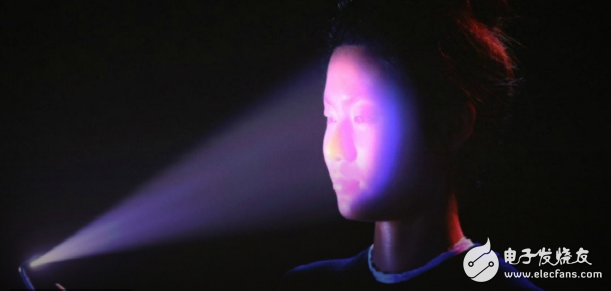Artificial intelligence may occupy the field of biometrics in the future, which is an unchangeable trend. Because biometrics is a complex security issue, it often involves complex algorithms, randomly generated passwords, and multiple authentication steps. After a large amount of data storage, it definitely requires an effective management, and artificial intelligence is the best solution.
But in the future, data security will rely on AI and machine learning to analyze data. And determine if anyone is trying to gain unauthorized access.

Take Apple's latest face recognition technology on iPhone X as an example. The iPhone X device will project up to 30,000 points on your face to draw 3D images. The relevant data will be processed using the latest A11 biomimetic chip and analyzed using machine learning on the device's neural engine (note, not in the cloud). According to Apple, even if you wear glasses, machine learning can still determine if it is your face. Similarly, this AI system scans hackers who hold your device, draws 3D images, and compares them with your data.
Using this AI to protect data security is not a temporary means, it will be the main means of combating hackers invading corporate networks. AI can analyze phishing, prevent social engineering attacks, and even attack machine networks that attempt to break into a secure environment using more sophisticated methods.
In contrast to this, the use of Face ID is very simple: you only need to look at the phone. You don't need to press your finger on the Touch ID sensor and you don't need to enter a password. Although there were mistakes in this week's Face ID demo, some experts said that this is within normal error, considering that there are too many people watching the phone that morning.
Of course, you might ask: Is Face ID the best way to protect your iPhone?
Mike Fumai, president and COO of security company AppGuard, said the technology is highly secure. The main reason for this is its architecture. Face ID doesn't run in the cloud, and the extra processing power from the neurological epidemic means that Apple doesn't want to make machine learning so complicated, but instead focuses on improving device performance. In addition, fingerprint scanning belongs to 2D rendering, while face scanning is 3D rendering, which contains more data points, so it is more secure.
He said: "Because the Face ID is version 1.0, it must be simple and consistent when faced with a wide and diverse range of end users. In the later version 2.0, Apple should provide more complex and dynamic. Biometric certification."
Fumai said that the neural engine will only help each new version improve security.
Of course, some people expressed concern.
Stephen Maloney, vice president of business development and strategy at security firm Acuant, said that although the general direction of facial recognition is correct, there are still some interesting solutions. Maloney said that the most worrying thing is that because of its simplicity, iPhone users will use Face ID as the only authentication method. After all, it only needs to look at the phone to pass the verification. When using Touch ID, some users add passwords in addition to fingerprint recognition.
In addition, Maloney said that Face ID lacks what he calls positive intentions. When using two-factor authentication, the user must scan his finger and enter a password. In the process, the user participates in the verification. When using Face ID, teenagers may scan their faces to unlock their parents' phones when their parents are not paying attention. (Apple claims that machine learning can tell if you look directly at the phone, and if the eyes are closed, it won't pass the verification.)
iPhone 7 has a useful security feature: you can activate the login by pressing the Home button five times. It's unclear whether iPhone X supports this feature, but since the physical Home button is now removed, there is a high probability that this feature is not available. In addition, Face ID is designed to ensure smooth and easy use, so you can quickly verify and complete your purchase. (Fumai said that iPhone X may still support this feature or provide other ways to reactivate security.)
Nathan Wenzler, chief security strategist at AsTech ConsulTIng, said that the most important milestone in this Apple conference was the nerve engine. Because this means that security will become more stable, smooth and simple. The Face ID security feature runs on the phone itself, so users don't have to remember complicated passwords or scan their fingers or eyeballs.
What is reality? In theory, Face ID and its machine learning algorithms look promising. Almost every expert pointed out that unless the hacker and security experts hold the device, the security of the iPhone X is very high.
4K Home Projector-watch ultra-high-definition movies without going out. Very suitable for home, office and school, compact design, powerful functions, this projector must be your best partner for entertainment or work.Thanks to the wireless connectivity, you'll be able to use it to download the videos, share files, enjoy more media activities.
4K Home Projector,Best 4K Projector,4K Projector,Full Hd Projector
Shenzhen Happybate Trading Co.,LTD , https://www.happybateprojector.com